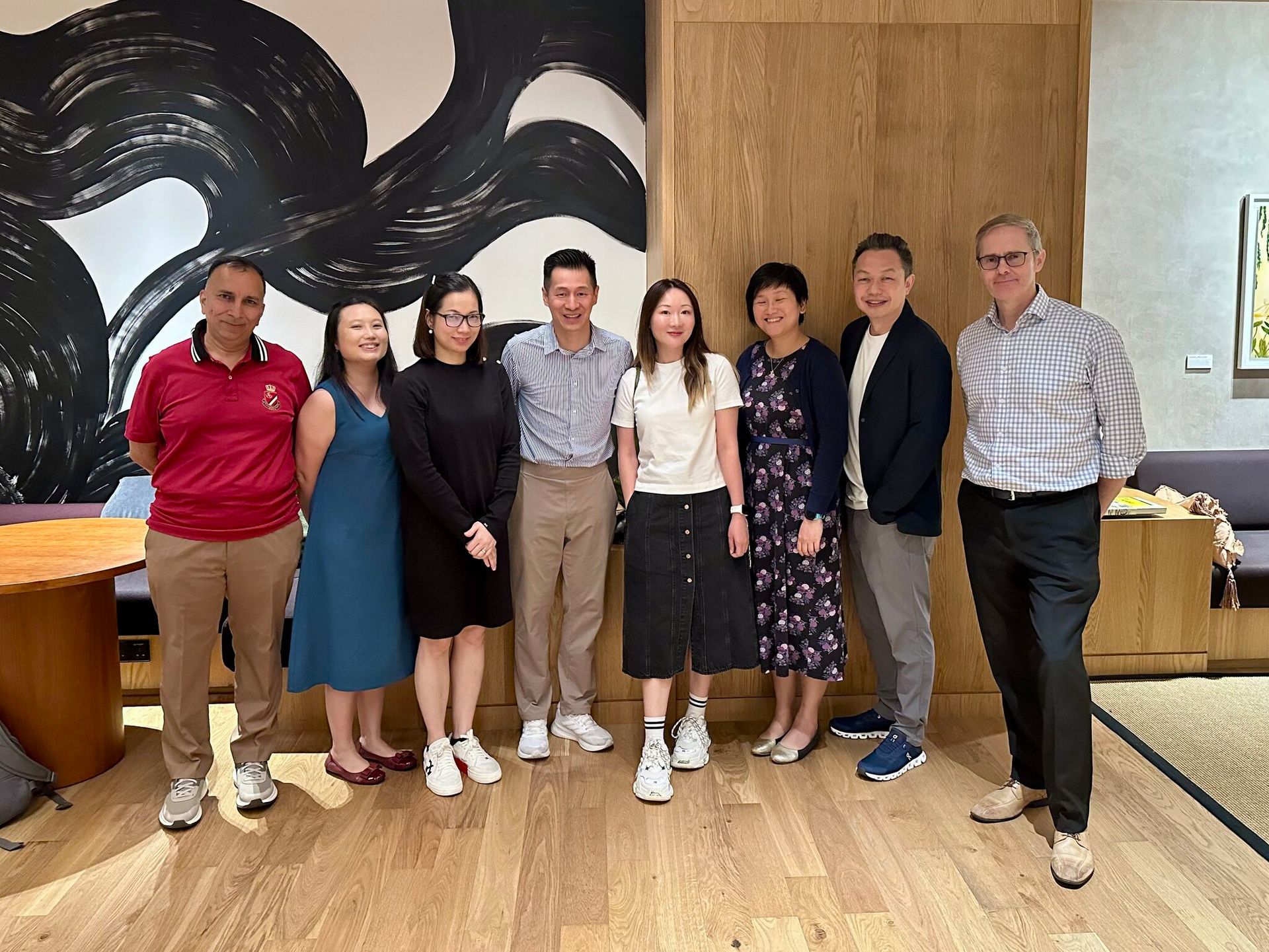By Yan Sen Lu
•
March 4, 2025
The senior HR executive market in Tokyo is experiencing significant transformation driven by demographic shifts, technological advancements, and evolving corporate priorities. While Japanese companies continue to adapt their human capital strategies to compete globally, they face unique challenges in attracting and retaining top HR leadership talent. This analysis examines the current state of the HR executive landscape in Tokyo, with particular emphasis on multinational corporations, revealing a complex interplay of factors shaping this specialized segment of the labor market. The research highlights a significant talent shortage at the executive level, substantial compensation disparities between Japanese and Western companies, and growing emphasis on digital transformation capabilities within HR leadership roles. Market Dynamics for Top-Tier HR Talent in Tokyo The executive search market in Japan, including for senior HR positions, remains in a relatively immature state compared to other global markets, having existed for a significantly shorter period than in regions like North America and Europe. This market immaturity creates unique challenges for companies seeking to fill leadership positions in Tokyo's competitive business environment. A critical issue facing organizations is an unprecedented shortage of executive and leadership talent, particularly in specialized functions like human resources, which stems largely from inadequate succession planning practices within Japanese corporations. This talent gap has been exacerbated by the COVID-19 pandemic, which created numerous leadership vacancies as companies were forced to manage Japanese operations remotely from overseas headquarters. The broader demographic challenges facing Japan are directly impacting the HR executive market. Japan is gradually transforming into what experts describe as a "limited labor-supply society," with demographic statistics projecting a continuous growth in the elderly population until 2044, while simultaneously experiencing a rapid decline in the working-age population until 2040. This demographic shift creates a structural and chronic shortage of labor that extends to the executive level across all functions, including human resources. The situation requires HR leaders with sophisticated strategies for talent management in an increasingly constrained labor market, making such professionals even more valuable and harder to secure. Human Resource officers in Japan are actively grappling with the challenge of adapting their hiring strategies to remain competitive in the face of growing pressure from global competitors. Chief Human Resources Officers (CHROs) from major Japanese firms such as Fujitsu, Panasonic, Marubeni, KDDI and OMRON have openly acknowledged the importance of investing in their people while simultaneously recognizing the significant difficulties in implementing effective human capital strategies. This consensus among industry leaders underscores the complex market dynamics for HR talent in Tokyo, where demand for strategic HR leadership continues to grow while the supply of qualified candidates remains constrained. HR Leadership Dynamics Across Different Industries The technology sector in Japan demonstrates a particularly diverse and specialized approach to HR roles, as evidenced by Rakuten's extensive HR department structure. Within this major e-commerce and technology company, HR positions span specialized functions including talent acquisition, employee relations, organizational optimization, HRIS (Human Resource Information Systems) management, and dedicated training and development roles. This sophisticated segmentation reflects the tech industry's need for HR leadership that can support rapid innovation while managing the unique challenges of attracting and retaining technical talent in a competitive market. The presence of specialized roles such as "Business Skills Trainer and Consultant" and "Talent Management Specialist" indicates the strategic importance tech companies place on developing human capital as a competitive advantage. In contrast, traditional manufacturing and telecommunications sectors in Japan appear to be placing increased emphasis on transformational HR leadership. Companies like Fujitsu, Panasonic, and KDDI are actively seeking HR executives who can drive cultural change while balancing traditional Japanese business practices with global best practices. These industry leaders recognize that maintaining competitiveness requires fundamental changes to their people strategies, particularly as they expand their global operations. The manufacturing sector faces additional HR challenges related to automation and aging workforces, requiring HR leadership with change management expertise and strategic workforce planning capabilities. Multinational companies operating in Japan represent a distinct segment within the market, with 80-90% of executive search clients being foreign capital companies headquartered outside of Japan. These organizations typically require HR leaders who can successfully navigate the intersection of Japanese business culture and international corporate practices. English language proficiency is consistently described as a necessity for these roles, while Japanese language skills represent a significant advantage but are not always mandatory. This creates a rather narrow candidate pool of bicultural, bilingual HR professionals who understand both Japanese employment practices and global HR standards. Recent Trends in HR Leadership Roles at Multinational Companies Digital transformation has emerged as a central focus for HR leadership roles in Japan, with companies increasingly seeking HR executives who can leverage technology to enhance workforce productivity and strategic capabilities. Tokyo Century, for example, has positioned digital transformation as a cornerstone of strengthening its management base and driving innovation in its corporate culture and business model. The company established a dedicated DX Strategy Division in December 2020 and has been advancing initiatives that include harnessing digital technology to enhance corporate value and bolster competitiveness. This trend requires HR leaders with technological fluency and change management expertise who can drive digital adoption throughout the organization. The COVID-19 pandemic has fundamentally altered leadership dynamics in multinational companies operating in Japan. Many leadership positions remained vacant locally during the pandemic, with companies forced to manage their Japanese teams remotely from overseas headquarters. In some extreme cases, expatriate executives on typical three-year rotational assignments never physically relocated to Japan during their entire tenure 1 . While these restrictions have eased with the loosening of pandemic-related travel constraints, they have accelerated the adoption of remote and hybrid work models, requiring HR leaders to develop new approaches to talent management, engagement, and organizational culture in distributed work environments. Human capital management has become a strategic priority for HR leaders in Japan, with CHROs from major Japanese firms actively discussing how to evolve their people strategies to remain competitive. This represents a shift from traditional Japanese HR practices focused primarily on administrative functions toward more strategic approaches that view human capital as a critical driver of organizational performance. The growing emphasis on human capital management requires HR executives with strong business acumen who can align workforce strategies with broader corporate objectives and demonstrate the ROI of people-related investments to senior leadership. Competitiveness and Retention Challenges in the HR Executive Market The scarcity of qualified HR leadership talent in Tokyo has created a highly competitive environment where strong candidates frequently receive competing offers. While specific counteroffers data isn't provided in the search results, the documented "unprecedented lack of executive and leadership level talent" strongly suggests that companies must be prepared for bidding wars when pursuing top HR candidates 1 . Organizations that fail to move quickly in the hiring process or that present uncompetitive offers risk losing candidates to more agile competitors, particularly multinational corporations with greater compensation flexibility. The combination of demographic pressures and increasing demand for specialized HR expertise creates a sellers' market for experienced HR executives with international exposure. This market dynamic places additional pressure on companies to develop comprehensive retention strategies for their HR leadership talent. While not specific to HR roles, we can observe that Japanese companies are increasingly recognizing that their traditional compensation approaches may be insufficient for retaining top talent. The movement toward more aggressive incentive structures among leading Japanese firms suggests an evolving approach to executive retention that places greater emphasis on performance-based rewards. Companies are counteracting talent bottlenecks through various approaches, including repatriating Japanese talent from overseas to fill leadership roles. This strategy leverages professionals who have gained international experience while maintaining cultural ties to Japan, creating a valuable talent pool for HR leadership positions that require both global perspective and local knowledge. The success of repatriation efforts depends significantly on companies' ability to provide compelling value propositions that address both professional aspirations and personal considerations, as these candidates often have multiple options in global markets. Challenges in Sourcing Exceptional HR Talent for Leadership Positions The fundamental challenge in sourcing exceptional HR talent for leadership positions in Tokyo stems from Japan's demographic realities. With the working-age population declining rapidly until 2040, the overall pool of available talent is shrinking, creating competitive pressure across all executive functions. This demographic constraint is particularly acute for specialized roles like HR leadership, where candidates must possess both technical expertise and strategic business capabilities. Companies must develop increasingly sophisticated talent strategies to identify and attract qualified candidates in this constrained market. Language barriers and cultural differences represent significant obstacles in the HR executive search process. For multinational companies, English language proficiency is typically a non-negotiable requirement, while Japanese language skills are highly valued but not always mandatory. This bilingual requirement substantially narrows the candidate pool, particularly for positions requiring both languages at business proficiency levels. Cultural fit presents an additional challenge, as HR leaders must effectively bridge Japanese business practices with global corporate expectations, requiring nuanced understanding of both contexts and the ability to navigate potential conflicts between them. The executive search practice in Japan remains relatively underdeveloped compared to other markets globally, creating additional sourcing challenges 1 . Many international search firms have attempted to enter the Japanese market but have struggled to adapt their approaches to the unique talent landscape of Japan. These firms have often overpromised results without fully understanding the local context, leading to disappointing outcomes for clients. This situation highlights the importance of working with search partners who possess deep knowledge of the Japanese HR executive market and maintain extensive networks within this specialized community. Salary Ranges and Compensation Structures for Senior HR Positions Senior HR executives in Tokyo, including roles such as Chief Human Resources Officers (CHROs), HR Directors, and Talent Management Heads, experience compensation trends that mirror Japan’s executive pay landscape while reflecting the strategic value of HR leadership. Although granular data for HR-specific roles is limited, benchmarks from senior management provide insight. Base salaries for HR leaders in Tokyo typically range between ¥13,000,000 to ¥14,500,000 annually, with top performers in transformative or global HR roles earning ¥15,000,000 to ¥16,500,000. Total compensation often includes HR-specific incentives tied to talent outcomes, such as retention rates, succession planning success, or diversity metrics, alongside traditional benefits like housing allowances or retirement contributions. Japanese vs. Western HR Compensation Practices A notable gap persists between Japanese firms and Western multinationals (MNCs) in structuring HR executive pay. Japanese companies historically prioritize fixed salaries, with bonuses averaging 20–30% of base pay for HR roles, compared to Western MNCs, where performance-linked incentives (e.g., achieving workforce scalability goals or digital transformation milestones) may constitute 40–60% of total compensation. Long-term incentives (LTIs) like stock options or deferred bonuses, common in Western HR packages, remain underutilized in domestic firms but are gaining traction for roles requiring global expertise.






